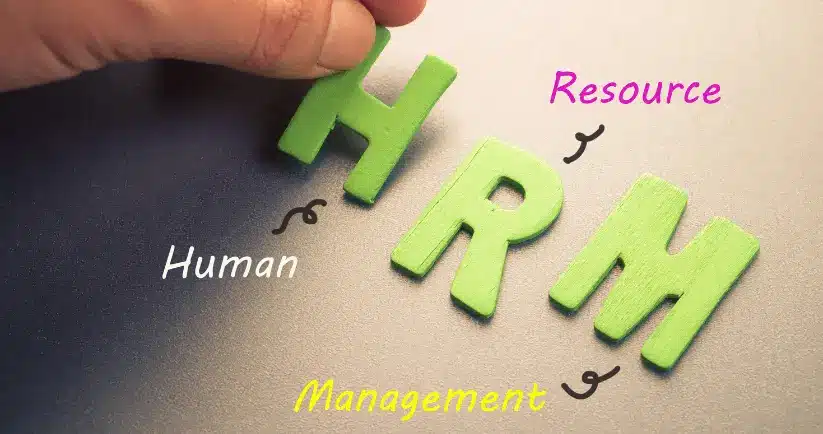A business is made of numerous employees, who are the essential real asset of every company to be successful. Acquiring skilled employees, utilizing their talents, and motivating them to perform their best is crucial to achieving any company’s success. The section responsible for handling all these tasks is the HR department.
Let us elaborate and define human resource management (HRM) in detail.
Human Resources is the term for the employees who work at the company. The human resource department is responsible for vetting, recruiting, hiring, training, and paying all employees of an organization. HR also ensures that every policy of a company is upheld and all employees feel safe and secure in their work environment. Human resources management is considered to be one of the most important departments in the company.
Responsibilities of HR include screening, hiring, and training new hires and administering their skill development. Additional responsibilities of human resources consist of benefits and compensation handling, firing, and keeping a tab on any new laws that might affect the company in any way.
What is Human Resource Management (HRM) Definition?
Handling all the essential responsibilities manually becomes overwhelming for Human Resources. With the fast-paced evolving world, there is a need for every organization to adapt to every new trend. Thus, many organizations have now started a proper system for managing these tasks, that is, the HRM or the Human Resource Management system.
The definition of human resource management (HRM) is that it is a systematic process of handling all the tasks and functions related to the company and its employees. Human resource management is a managerial procedure and some of the crucial tasks involve perusing and attracting the right candidate for a job, training them, handling their onboarding, and making sure they turn out to be retained for the long haul.
HRM meaning is really simple, it is the practice of attracting, recruiting, training, and managing all employees in an organization to ensure productivity.
Functions of Human Resource Management
The overall role of human resource management is to handle every employee in an organization to achieve the company’s targets and goals. The key responsibilities of human resource management (HRM) include the following.
➔ Job Analysis
This includes finding and attracting the perfect candidate for their company. Job analysis is the base of recruitment management which is one of the responsibilities of human resource management.
Job analysis in the organization is the process of understanding different aspects of the job position such as who will be responsible for the goals, and what are the necessary skills to do the job.
In addition to that human resource management also has to decide what will be the compensation and benefits of employees who will work in the position. This may also involve the analysis of the number of employees to be recruited for the role.
➔ Skill Development
In the modern era, HR managers serve as strategic partners of a company. They play a crucial role in identifying, developing, and executing their company’s goals. They make sure that every employee’s goals and targets are aligned with those of the company.
Training and development is one of the responsibilities that HR professionals need to oversee as it is part of the development of human resources. An HR manager also has to ensure that the people in the company are skilled enough in order to fulfill their responsibilities.
Human resources management has to start its training and development strategy with the goal of the organization. Training and development are important just for the present role of the employee but also for succession planning as well.
➔ Career Assistance
Gone are the days when the employee stuck to the same company and role throughout their career. In the fast-paced and evolving world, everyone wants to try different fields and work on their skill development. Human Resource Management helps employees with career development and achieve deeper insight into the potential of all employees.
➔ Increase Employee Engagement
Ensuring that every employee is engaged with their company is very essential for human resource management. A human resource professional understands that the management of people in the organization is not only giving them compensation and benefits but also working for employee engagement. The role of HRM is to make sure that number of activities are organized to keep people engaged.
➔ Sympathetic Ear
Every employee wants to feel safe and secure at the workplace. The HR professionals are always available to listen to employees and help them. For that, HR should create an environment where any employee feels comfortable approaching them regarding any issue such as dispute, harassment, or violence.
Employees are far more likely to stay in their company for a long time if they feel valued and safe. By ensuring these above criteria, the HRM improves the retention strategy of their company, thereby creating a low turnover. The work of the HR department is more complicated now than it has ever been.
Benefits of the HRM
There are a lot of efforts that go into managing every employee, from hiring to onboarding, various performance analyses, and much more. Thus, human resource is vital for every organization and entails a lot of advantages, such as,
➔ Cost-effective
Money saved is money invested. If a company ends up hiring an employee without any background checks like their qualifications or skills, there is a high chance of the company’s money going down the drain. It is essential to know which employee is suited for which role, therefore HRM plays an important role in cutting down company costs by hiring the right candidate.
➔ Competence
An HRM is also in charge of drafting the processes in such a way that every employee is aligned with the goals and targets of their respective organizations. They know what is expected from them from the joining, and they try to achieve it time over time.
➔ Increased Credibility
Employees are known as the crucial assets of any organization, without them any business will come to a standstill. HRM helps in hiring the perfect candidate for the organization, which by default increases the credibility of a company.
➔ Improved Dedication
To create a low turnover in the company, it’s important to retain top-skilled employees. The HRM adapts techniques to create a healthy bond of commitment between the company and the employee, which helps in retention.
➔ Evolve
With the ever-changing world, organizations need to change too. Human resource management changes with the world, it adapts and implements new rules and cultures according to changing world to ensure that the company is up to date with the latest trends.
➔ Competitive Advantage
Human Resource Management keeps an eye on all their competitor’s strategies, and they try and incorporate new ideas which their competitors aren’t applying, thereby attracting top-skilled candidates.
➔ Better Communication
Maintaining regular communication between everyone in a company is a must. The employees often feel they are not valued if their ideas are not given any importance. To ensure effective communication, human resource management creates a common platform for everyone.
➔ Increased Consistency
Various activities and rewards should be organized to create a healthy competitive atmosphere and a healthy bond between everyone. These tasks organized by human resource management, improve the consistency of every employee.
Also Read: HRMS Full Form: Meaning of HR Management System
Role of Human Resources
The previous name for human resource management was personnel management. The presence of human resources in every organization is a must, regardless of any company’s size or type of work. The responsibility of HR includes increasing employee engagement and productivity by making sure the employees are happy with their job and organization.
They undertake some of the crucial responsibilities of the organization such as:
- Understanding the present and future needs of an organization
- Ensuring that every company and employee is in compliance with the state, local, and government labour laws and regulations
- Discovering, recruiting, and retaining all the top-skilled employees
- Management of employee benefits and compensation
- Ensuring employee engagement
- Handling hiring, training, onboarding, and enhancing employees’ skills to boost company growth
- Ensuring hygiene by applying health and safety measures
- Handling crucial administrative functions such as payroll and taxes
- Reviewing the performance appraisal of all employees
To ensure that every function is handled carefully and successfully, it is important to have a good HR manager. There arise questions about what the certain qualities that an HR personnel should entail.
Qualities of a Good HR Manager
When we regularly interview HR managers in organizations, we can see that almost all the top and skilled HR leaders share the same goals and thinking. We have chosen the top qualities found in outstanding HR managers, such as,
➔ Effective Communication
Highly productive human resource managers turn out as strong communicators as well as influencers. They provide knowledge and guidance on a vast scale of HR matters and introduce new ways of handling things to improvise the organization’s plans.
They can communicate easily with employees and managers, and facilitate changes very easily. They lend a sympathetic ear to all their employees to develop a special bond with all of them over time.
➔ Problem Solver
As the name suggests, an outstanding HR leader can are focused on the solutions and solves the issues faced by the company. They have an impeccable problem-fixing capacity. HR bestows itself upon numerous complex and unforeseen legal, and management problems. Skilled HR managers help to prevent problems and deal with them fearlessly to ensure the organization does not suffer.
➔ Judicious
Great HR managers don’t work in a void, they understand their company’s strategies, take efforts to visualize the future, align their projects, and goals, and work for the needs of their organization. They know the value of high performance and try to trigger it through talent management.
➔ Future Planners
The top quality of the best HR managers is that they plan the future of their company by identifying amazing opportunities and detecting potential threats. They create strategies on how to retain the top employees, and also make positive changes to their company’s culture. They ensure that they turn out to be ready for any challenges that will come their way to protect the organization and stay ahead of the competitors.
The HR department also stays up-to-date with all the laws and regulations related to the company and ensures compliance. They are the backbone of any company and they make sure that the organization runs smoothly and successfully.
Human resource management contributes vastly to a company’s maintenance and success. Human Resource Management meaning is the effective management of all the people working for a company. The HR managers of an organization need to have extraordinary and exemplary skills to have an edge over their competitors.
They enhance the credibility of a company, increasing its brand value and success. They also ensure that every employee that they are hiring, has their targets and goals aligned with that of an organization. Thus, HR and HRM are vital assets of any business.
Pocket HRMS is one such new-age HRMS software with integrated modules supporting each function of human resource management. To learn more, contact us at sales@pockethrms.com









